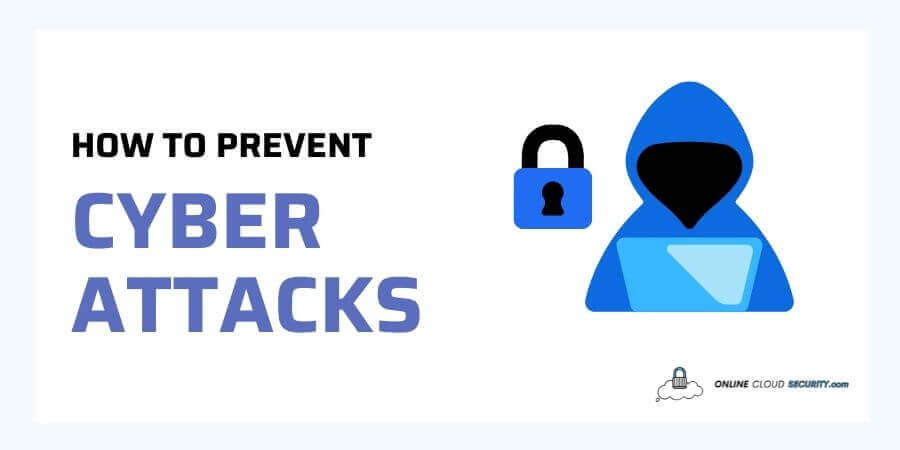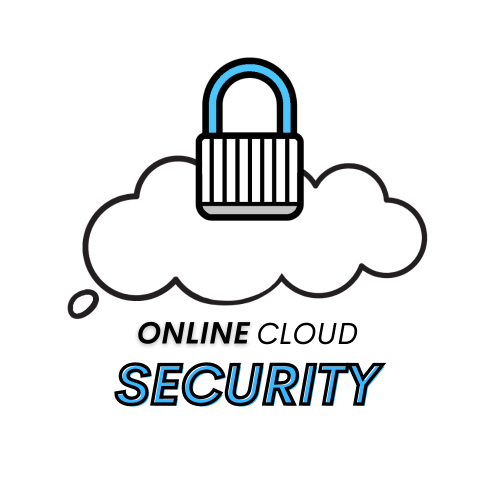
Dave Miller – Tech Enthusiast & Security Expert – March 29th, 2022

Digital changes and current world events have changed how we interact with the Internet like never before, leaving just one question: How to Prevent Cyber Attacks? The word “cybercrime” is a broad term that encompasses a wide range of technical security incidents. But, one thing is sure, cybercrime is on the rise, as we all know, and the statistics on cybercrime can teach us a lot more. You need to know this because you will need to innovate and integrate is a continual tug against the requirement to safeguard data, regardless of your location or data size.
The need for cyber security precautions has never been greater. While cyber-attacks are unavoidable, you can take steps to protect your safety. All you have to do is read this article.
Because of numerous digital gadgets and the Internet world to support them, our life has grown significantly more comfortable nowadays. Because it revolutionized the course of humanity, the Internet is indeed the greatest innovation of the twentieth century. Even the United Nations has declared that achieving digital collaboration is critical for the future. But, the revolution in internet technology has a negative side in terms of cybercrime security and privacy.
To grasp how to prevent cyber attacks, you must first comprehend what a cyber assault is and what hazards it poses to you. In simple terms, cybercrime uses computers for illicit purposes such as fraud or invasion of privacy. As the computer has become the center of everything, cybercrime has risen, mainly through the Internet. Cyber assaults, like hacktivists, can be linked to cyber warfare in addition to criminality. Other incentives for cyber attacks include gaining an unfair edge over competitors and intellectual challenges.
The reason for this is that as the number of connected devices grows, so does the number of chances to exploit flaws because the cybersecurity industry’s difficulties are as dynamic as the sector itself.
Any individual or organization may launch a cyber-attack from anywhere using one or more different attack tactics. Here are some frequent sorts of cyber attacks that happen all the time.
Pishing: Phishing attacks are pretty prevalent. They include delivering large volumes of messages that appear to come from a trustworthy source. You can get duped into installing malware or passing over your confidential information this way.
Malware: It refers to malicious software, and it infiltrates a network by exploiting a flaw, usually when a person clicks on a link or file. It can steal or discreetly copy critical information.
MitM: When an attacker inserts themself into a two-party transaction, it is known as a MitM attack or Man-in-the-middle attack. The user unwittingly transmits all information to the attacker.
DDoS: Downloading on the go Attacks are a systematic way for malware to propagate. Hackers hunt for websites that aren’t safe and inject a harmful script into the HTTP or PHP code. As a result, the victim gets sent to a hacker-controlled website.
SQL Injection: When an attacker injects harmful code into a server that utilizes the language, this is known as a Structured Query Language injection. The backend can conduct malicious queries when a SQL statement uses a parameter rather than immediately adding the values.
Cerrendiatals Attack: The most popular method of authenticating users to a data system is using passwords. Hackers steal credentials to gain unlawful access to systems and steal sensitive data in credential-based attacks.
Here are the most efficient ways how to prevent cyber attacks and keep you and your data safe online
Employee training is one of the most effective strategies to guard against cyber assaults and all forms of data breaches. An unknowing employee will often click on anything on their company computer by accident, resulting in a possibility of cyber attack.
Every aspect of personal information may be exploited nefariously by criminal hackers. It’s critical that every employee in every department knows and recalls the importance of cybersecurity. It would be best to work on rules and seminars to teach and raise employee awareness. Make your staff feel secure reporting transgressions so that mistakes can get repaired or intrusion avoided. You should also establish standards and procedures for how workers utilize Wi-Fi when they’re not at work. Your team will be more inclined to come forward by implementing these policies
It’s impossible to forecast the next strike. On the other hand, your organization may prepare for anything if its staff are well-informed. Also, setting up an event management strategy aids any business in determining how to react in a realistic situation and mitigate the damage.
Bonus Tip: Have I Been Pwned searches numerous data breaches to discover whether your email or contact number has got hacked. You can use this service to check whether your data was among the previous data breaches
Outsourcing cybersecurity to specialist organizations provides you with trained and devoted IT professionals. They will monitor your online presence and assist you in dealing with the different cyberattacks that are common these days. They will also install firewalls for real-time security and provide services 24 around the clock. The thing is, outsourcing can be expensive. As a result, smaller firms will always be vulnerable to cyber assaults because some have limited IT resources. Others cannot afford an extensive staff of in-house online security professionals.
Getting into the risk assessment is something that smaller businesses may accomplish. It’s intended to help you understand your risk appetite and identify and manage your yearly cybersecurity budget. Furthermore, although a guide like NIST SP 800-30 Guide for Conducting Risk Assessments gets developed for government and companies, a small firm may still use the ideas.
Antivirus software is an essential aspect of a user’s overall cybersecurity hygiene. Antivirus technology and endpoint security services safeguard your network against viruses and brute-force attacks. They get made to discover known infections and additional malware that can harm the user or their device more often than not. Even if there were no internet, antivirus software would get required for as long as computers existed and will continue to exist. When spending on antivirus software, choose a subscription-based package that is reliable and well-known.
Furthermore, cyber assaults frequently occur due to out-of-date systems or software. Even if you have antivirus software, the key to utilizing it effectively is to keep it up to date and to set its protective settings to a high level. Users should be secure from known attacks if they have an antivirus product installed with frequent updates and scans.
Transferring data from corporate computers to other devices will become more common as the number of remote employees grows. Additionally, storing business data on personal or external devices exposes your data to hackers.
The best thing you can do is use the control panel settings to encrypt your network or subscribe to a virtual private network service. You may also encrypt your data in transit and at rest. So, even if you can’t limit the amount of data handled online, you can keep your data contained to you exclusively by using encryption keys. You can also opt for 2-F authentication for an even further safe experience.
Monitoring where data sits frequently and discovering and correcting current leaks will help you reduce the danger of data exfiltration.
Choosing a simple password is the equivalent of putting the keys just on the doorknob. Make sure it’s one-of-a-kind and between 12 and 15 characters long.
Bonus Tip: A lengthier password is typically preferable to a more random password.
To guarantee a high degree of safety against external and internal threats, passwords should get updated often. Although it may appear self-evident, nothing can save you if your foundation isn’t strong enough.
Here is the factual data in the past year, which clearly shows why the answer to the question of How to Prevent Cyber Attacks is crucial
Avoiding a cyberattack is critical for the survival of your company. Without question, our world is becoming more digital and networked. So, although we must secure ourselves, it will require everybody to safeguard the systems we all rely on truly. The first step is to create a strong password.
After that, adding a level of safety seems reasonable. Outsourcing your security needs can undoubtedly elevate your company’s security to the next level, but it will come at a cost. So, even if you’re a little business, the ideas I’ve provided will assist you in securing your web presence.
**Onlinecloudsecurity.com is a participant in the Amazon Services LLC Associates Program, an affiliate advertising program designed to provide a way for websites to earn advertising revenues by advertising and linking to Amazon.com and affiliated sites. As an Amazon Associate we earn affiliate commissions from qualifying purchases.**

Dave Miller is an IT Consultant for Online Cloud Security and has over 7 years of experience in the Information Technology space. He also specializes in repairing laptops & computers. In his spare time, he loves to talk about new technologies and hosts monthly IT and Cyber Security meetings in the Houston area.
Click any button down below to share this article on the following channels:

Online Cloud Security is here to recommend you the most secure devices, from laptops to smartphones, we only want to provide you with products that we have tested and used ourselves for online security. Every product that we recommend is heavily inspected and tested for security against hackers, viruses, malware, and any other intruders that may want to steal your information.
Lorem ipsum dolor sit amet, consectetur adipiscing elit, sed do eiusmod tempor

Online Cloud Security is here to recommend you the most secure devices, from laptops to smartphones, we only want to provide you with products that we have tested and used ourselves for online security. Every product that we recommend is heavily inspected and tested for security against hackers, viruses, malware, and any other intruders that may want to steal your information.
Your Trusted Source for Online Security